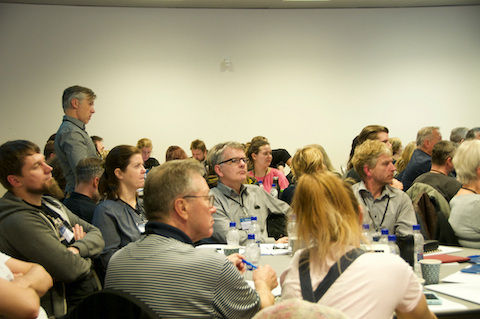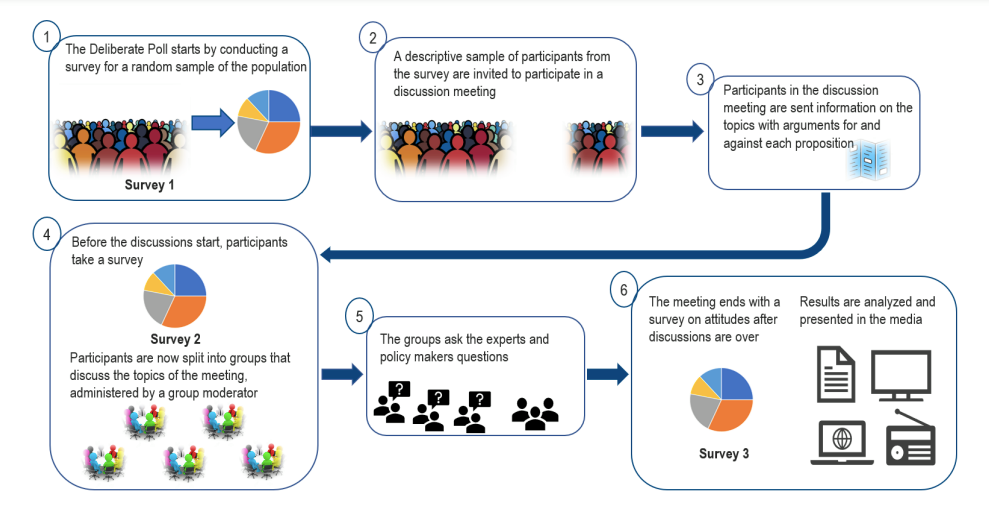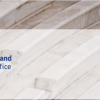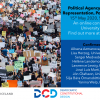
This section is dedicated to an in-depth analysis of the discussions Deliberative Meeting that was a part of the Deliberative Poll on amendments to the Constitution of Iceland. The Deliberative meeting was held 8-9 November 2019. A detailed report and statistics with the results the Deliberative Poll are accessible on the Social Science Research Center website. But here, we want to to give a fuller overview of the discussions on each topic and highlight some of the discussions at the participants’ tables. This is to provide a more nuanced picture of how attitudes changed during these conversations among strangers in the Deliberative meeting.
Here you can read the overview on each of the main themes discussed at the meeting:
1. Should presidency be revised?
2. The Court of Impeachment and the Parliament’s power of indictment
3. Amending the Constitution
4. National Referendums and citizen Initiatives
5. Electoral Constituencies, Vote Weight and Ranked Voting
6. International Cooperation and the Transfer of Power
What is a Deliberative Poll and what is a Deliberative Meeting?

The Deliberative Poll on the Constitution began in the summer of 2019 with a large general survey. People were asked about their views on several issues in the Icelandic Constitution that the government wants to revise during this electoral term. A random sample of the survey participants was then invited to join a deliberative meeting which took place in Reykjavík. 233 people participated in the meeting – about 10% of those who answered the survey questionnaire.
The deliberative meeting was held 9-10 November 2019. 27 groups of participants discussed the following issues: The Icelandic presidency,, the Parliament’s power to indict ministers and the Court of Impeachment, articles on how to amend the Constitution, national referendums and citizen initiatives, electoral constituencies and vote weight, and international cooperation.
At the beginning of the deliberative meeting participants were asked to answer a questionnaire on their views about the issues under consideration. They were also asked about their values and their political environment, and political participation. They were then split into groups for rounds of discussions with Q and A sessions with experts in between discussion rounds. At the end of day two, they then answered another questionnaire on the same topics as the one in the beginning of the meeting.
In some areas we did not see significant changes, but in others there were significant changes in opinion after the discussions. Views on the Icelandic presidency e.g. did not change much, but in other areas significant changes happened, such as on what the Constitution should say about the status of international agreements and about the Parliament’s power to indict ministers and the Court of Impeachment.
As interesting as the statistics about these changes are, it is even more interesting and important to understand why participants’ views changed (or not). What were the arguments made? Did people feel that they learned something new about the issues?
The Lýðræðisleg stjórnarskrárgerð podcast (in Icelandic) also interviewed participants. These interviews provided a unique insight into the discussions, why people participate in events like the Deliberative meeting, and what participants thought about the meeting and the discussions.





















